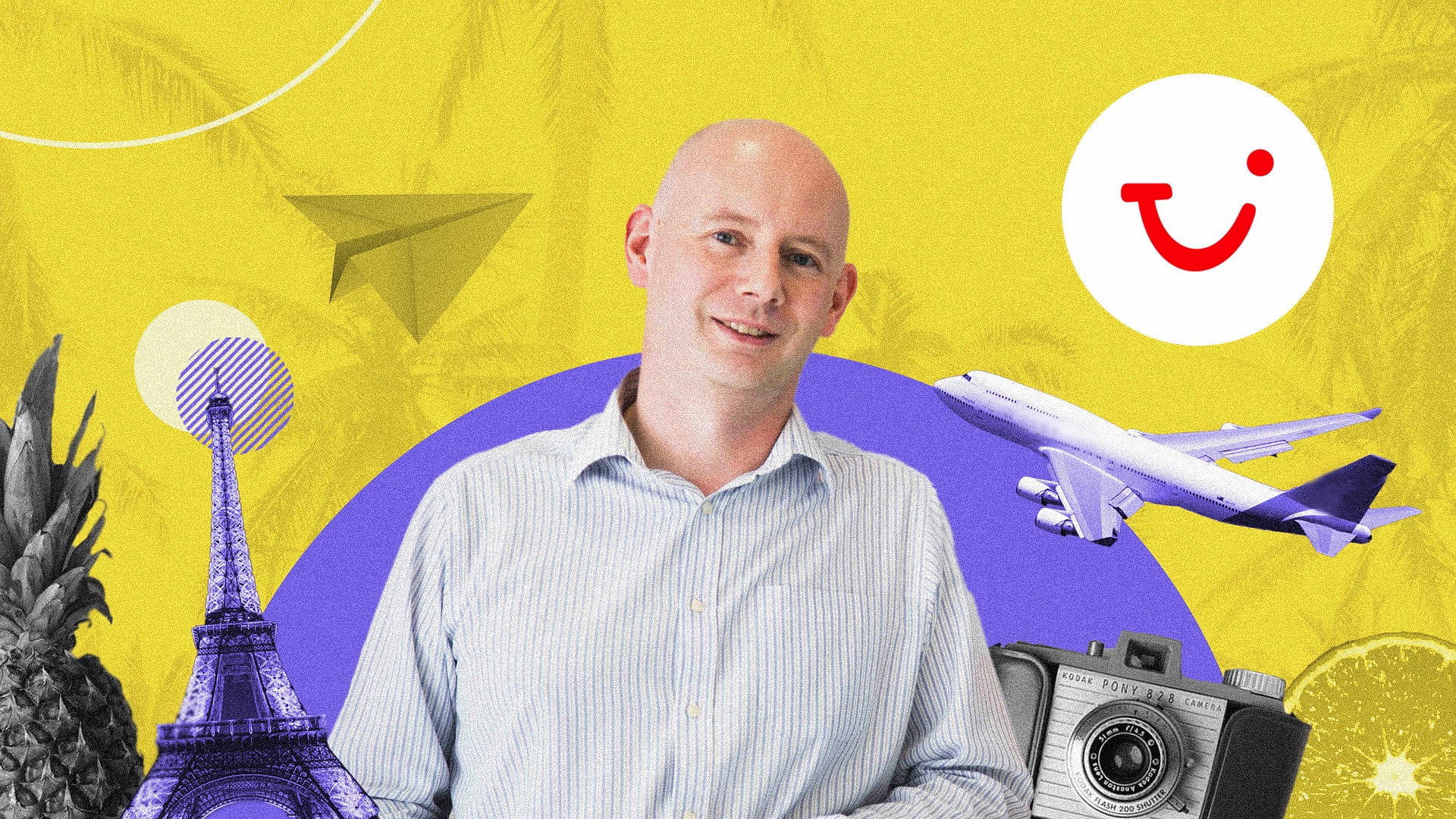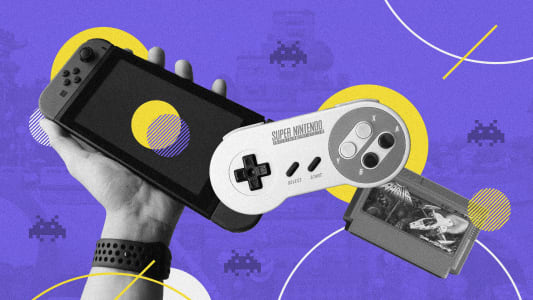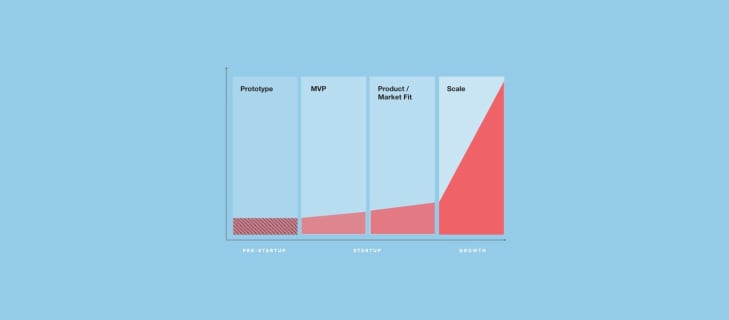Digital innovation as a driver of growth - a talk with Chris Carmichael of TUI
We are delighted to share with you an insightful talk with an experienced professional and one of our partners, Chris Carmichael - Head of Corporate Innovation at TUI Musement. Chris reveals the secret of TUI’s ongoing success despite the travel industry crisis caused by the pandemic. He shares the company’s innovation path and future tech strategy for serving over 20 million tourists a year. How has TUI’s Innovation Lab transformed the business and helped it keep its position among the greatest global leaders of the travel sector? Find out.

Table of contents
About TUI Musement
Artur Belka:
Before we ask about innovation, can you tell us a bit about TUI Musement? Most people know, TUI is a huge international tourism company. But TUI Musement is a very unique business. How does it operate? What are TUI Musement’s services?
Chris Carmichael:
TUI Musement has grown out of what was a fairly traditional destination management business. By destination management business, I mean the people who manage all operations at the destination - like the hotel representatives who are there to make sure everybody has a great holiday. TUI ran bus transfer operations and multilingual call centers to provide support and services for tourists. The company was formed almost 7 years ago, consolidating a number of services for TUI. Three years ago we incorporated an Italian start-up called Musement. The consolidation turned out to be a great accelerator for TUI’s digital transformation.
The transformation started with building a platform that let us provide services globally and move into the B2B space. Now, we’re retailing not just through TUI but also through platforms like booking.com. When you’re using booking.com to get a ticket for an excursion, there’s a good chance that you are buying through TUI’s platform.
More recently, we have announced that we’re moving from organizing traditional static tours into providing flexible multi-day tours. For a traditional tour, the group arrives in the same city at the same time and travels from city to city together, staying at the same hotels. The innovation is, we want to give our clients more choice, so they can decide themselves where they want to start a tour, which hotels they want to stay in, and what attractions they want to visit.
Response to the pandemic - TUI Musement’s innovation
Artur Belka:
TUI provides experiences for about 20 million people a year. It manages 200 planes, over 200 hotels, and over a dozen cruise ships. It’s really massive. For the past two years, the travel business has been struggling with the consequences of the pandemic. TUI Musement used these new circumstances in a very interesting way. Could you tell us about it?
Chris Carmichael:
When a business relies on travel, and suddenly nobody is allowed to travel, the situation obviously impacts the company significantly. I am happy to say that things have been a lot better recently. We are beginning to get back to pre-pandemic levels.
The pandemic brought us not only challenges, but also great opportunities. We made huge advances during the COVID period. We implemented structural changes, and significantly accelerated our cloud transformation, moving all of our services into the cloud. This has been a lot easier than it would have been in normal circumstances, i.e. with our technical staff engaged in dealing with thousands of calls a second.
As bad as COVID has been for our business, it’s also been a real catalyst for change and we would have probably taken about three years to get to where we are now. Digitally, we are now much more developed than we were before the pandemic.
Implementing innovations and new technology
Artur Belka:
Even before COVID you were using AR and VR technologies at TUI. Now you are revamping the entire customer service concept with a very heavy emphasis on service automation: AR, VR, AI. It seems TUI Musement aims to provide more automated services. Is that so?
Chris Carmichael:
We started to experiment with virtual reality about six years ago. At the time, Google Cardboard had just been announced and it was very cost effective to get and use it. We started checking how we could create content for it and how it could engage our customers.
Later on, the Gear VR and Samsung headsets appeared on the market. Our first trial with virtual reality cost us about 900 EUR. We bought a Samsung S6 and a Gear VR headset that we put into one of our hotels. We didn’t have 360 cameras or VR capable cameras, so I was personally visiting all tourist attractions in Majorca - at 5:30 in the morning - to take 140-150 overlapping pictures before anybody arrived.
We very quickly got into observing the impact VR technology had on our customers. We measured how it affected sales, and the outcomes were surprisingly positive. VR really helps to get our customers engaged with the excursions and activities we offer.
There is a very well-known cave network around Majorca, which is a popular tourist attraction. With VR, we were able to show the inside of caves to claustrophobic clients, so they could see how wide open they are. This way, we were able to encourage people to buy a ticket for a cave tour.
We’ve done a number of tests and experiments with VR, augmented reality glasses - Epson’s glasses, and with the nreal. Another technology we were into was AI. We used new AI functionalities to improve our customer service via chat. We’ve succeeded coming out of the Innovation Lab with an idea to use semantic analysis and sentiment analysis for our chat bots.
To give you a little bit of context, let me tell you how we operate. We get many customers sending us messages through the TUI app. There are agents in our contact center who deal with chat messages in all languages. And we also use bots. But if a customer sounds angry, concerned, worried - then they need to speak to a human being. In this case, we would not send them an automated answer. That is why we applied sentiment analysis. It checks the customer’s sentiment and decides whether to answer the message, or forward it to the agents.
We set our smart bot to answer any question that can be answered within two seconds. (And it’s about 20% of all the questions we get. These are questions like, what time is my bus coming?). The rest of the cases are sent to agents. This way, our team can solve the problems that require skills and knowledge, and not just information sitting in one of our databases.
Measurements and data
Artur Belka:
Client actions via TUI’s applications are quite easy to measure. But it’s the opposite with the actual customer experience at the destination. You must have a huge research apparatus and really put a lot of effort into gathering data and customer feedback. How does it work?
Chris Carmichael:
We’ve got a dedicated data science team and customer research teams. All within TUI Musement. Every year, we do measurements on customer satisfaction using NPS scores, etc. We do a lot of deep dives into particular products and ideas, particular points of the journey, or the overall holiday experience. For example, we are looking at how we could make the bus transfer a little bit smarter. We built a platform announcing upcoming stops, etc. To actually understand whether it was useful, we put a couple of researchers on the buses and asked them to travel from point to point, talk to customers and find out what their experience was, what worked for them, what was missing.
What’s next?
Artur Belka:
And what do you think is the next big innovation that you might be expecting in the upcoming years? Maybe it correlates with how the industry has been affected by COVID?
Chris Carmichael:
I think, given that we are such a customer-focused business, we are probably at the front of whatever the next customer trend is. The latest shiny new advances in ERP platforms can give us some advantages but that’s not where the fun is, and that’s not the really noticeable part.
Number one on the schedule for me is mixed reality. We’re coming to the end of the age of smartphones. The market is ready for the next solution and the smartphone itself is actually a horrible way to interact. Day by day, we’re carrying this expensive and heavy lump of very fragile glass in our pocket. I think other wearables will become more popular over the next couple of years. Then, the general population will move away from the smartphone and onto the next-tier devices.
Also other digital solutions, like self-driving technologies, will impact our transportation services. We perform about 31 million transfers during a normal operating year. Here in Majorca, on a busy Saturday, we can do 30,000 transfers.
So, it’s a hugely complex enterprise. I can see us using small, electric, self-driving vehicles. Guests arrive at the airport, they get into the vehicle and it takes them directly where they need to go. This innovation is going to radically affect the traditional part of our business. We’re looking into it.
Artur Belka:
It seems the transformation of TUI is on, and the innovation process will never end. We wish you lots of success with it. Thank you so much for your time and interesting insights, Chris. We hope to host you again in the future - maybe… to hear the next new technological revelations.
Share this article:








